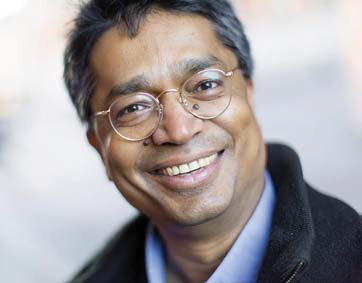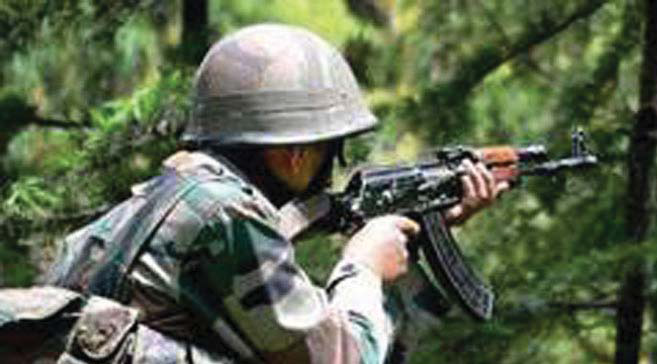Can the Indian Army not be questioned for evidence of surgical strikes?
The Indian government’s intentional politicisation of the issue is an affront to India's democratic values.

By Ashok Swain
ASHOK SWAIN @ashoswai
On September 29, the Indian military came out in the open about its surgical strikes on the Pakistani side of the Line of Control in Kashmir, asserting that it inflicted "significant casualties" on militants waiting to infiltrate.
Pakistan's military immediately denied that any such strike occurred, but at the same time admitted its two soldiers were killed. Considering the previous track record, it was expected that no one outside Pakistan would take the Pakistan Army's denial seriously.
However, for a week now, Pakistan has mounted an international effort to disprove the Indian Army's claim. The refusal of the Indian government to share evidence and conflicting claims over the scale of its strike by some ministers have helped Pakistan convince a large and influential section of the international media to buy its story.
The Indian government's decision to openly claim the success of this "surgical strike", and to use it for political purposes, had unnerved the Opposition. However, probing international media reports and refusal of the UN Military Observer Group in India and Pakistan (UNMOGIP) on the strikes have encouraged some key opposition leaders and political commentators in the last two days to ask the government to come out clean.
Instead of providing some evidence to put the record straight, the BJP has decided to use its favourite "anti-national" attack mode against the opposition voices asking for more information - absolute trust in the Army is a must, anyone who questions the Army is anti-national.
It is a matter of grave concern that in Indian democracy, it has become taboo to ask pertinent questions to the armed forces even on vital matters of national interest. Even in Pakistan, there is no such blanket branding of Army critics. This ultra-nationalistic position in India by the ruling party and a section of the media puts a question mark on the state of Indian democracy.
To respect democratic principles and fundamental rights, all state institutions in India including the Army need to stay under democratic control. Unlike Pakistan, the control of the armed forces in India thankfully remains in the hands of democratically elected civilian authorities.
Democracy is difficult to imagine in the absence of civilian primacy over the military. However, the democratic accountability of the armed forces is not only limited to parliamentary control, it also includes being answerable to public opinion, media and society in general.
Civilian audit of the military is one of the cornerstones of democracy. It is essential to maintaining the accountability of armed forces' personnel to the people, and that legitimises their role and power both at home and abroad. Thus, the Indian Army for its own credibility should appreciate public debate over its actions and effectiveness.
In Indian democracy, a citizen has a right to know what the military does and the Army needs to be transparent. In this hyper-information era, it is almost impossible to hide facts from the public domain for long.
The intentional manufacturing of confusion by the government helps it to trap the Opposition into a patriot versus "Pakistani binary.
It is important to win the perception battle than with arms and ammunition.
Being honest about its operational successes and failures and
maintaining transparency creates a positive image for the
Army to take an upper hand in this context.
However, the majority in military leadership in India usually suffers from a Brahminical mindset and tends to believe that they are the only ones qualified to evaluate their engagements and have no need to answer the common man.
Thus they tend to consider public accountability as an unnecessary errand and public debate as useless distraction. That comes out clearly when someone listens to many retired generals in TV debates.

The Army cannot expect that everything they do or claim to do should be glorified without any question being asked. Public evaluation of its genuine achievements and lapses is critical to improve itself and build genuine public trust. If information is suppressed or misreported, it will likely lead to misinterpretation and damage the public image of the armed forces.
It is critical that there should be as much as possible transparency and accountability in the activity of the armed forces. That will reduce the danger of civil-military gap and will help build confidence, cooperation and capacity of a democratic society.
Breaking from past practices, it is the political leadership's prerogative in deciding to come out openly about the surgical strikes of the Army. However, the leadership also is duty-bound to protect the Indian Army from being used in political one-upmanship.
There are many of examples in India's neighbourhood of the military taking advantage of its strength (physical and institutional) and capturing power through a coup, or superseding civilian leaders or imposing leaders of its own choice. For democracy to survive and to protect its values, the objective of the Indian government must be to keep its armed forces politically neutral.
Taking the cover of maintaining secrecy to protect national interest, the Indian government is not sharing evidences to substantiate its claim of the successes achieved through surgical strikes. Unfortunately, the government sees political gain in keeping the "surgical strike" debate going as it helps keep focus on its so-called muscular approach vis-à-vis Pakistan in the public domain.
Even way back in 1973, quoting Justice Polak, Justice KK Mathew had observed in the Supreme Court: "The secrecy system has become much less a means by which government protects national security than a means by which the government safeguards its reputation, dissembles its purpose, buries its mistakes, manipulates its citizens, maximises its power and corrupts itself." This is exactly what the government is doing now.
There is no convincing reason in support of the government's decision to not make photographic evidence of surgical strikes public, as most of the powerful armies in the world regularly do it to support their cases.
This intentional manufacturing of confusion by the government helps it to trap the Opposition into a patriot versus "Pakistani" binary, but at the same time it raises serious questions over the reputation of the Indian Army.
Thus, by refusing to share proof, the government is not anyway safeguarding the Army or protecting national interest. Rather, the government's intentional politicisation of the issue is an affront to democratic values of the country and inflicts serious damage on the credibility of the Army.
Editor’s Note: Please post your comments on this article at www.indiaparentmagazine.org under this article.

 1.408.254.0954
1.408.254.0954




